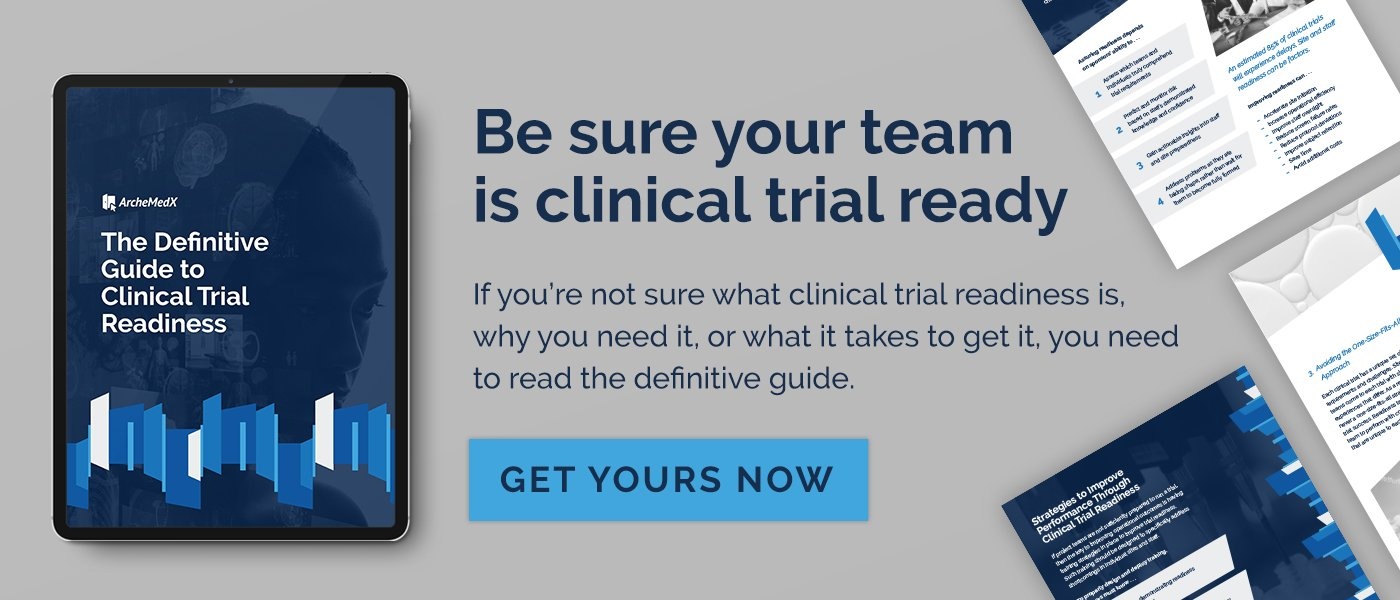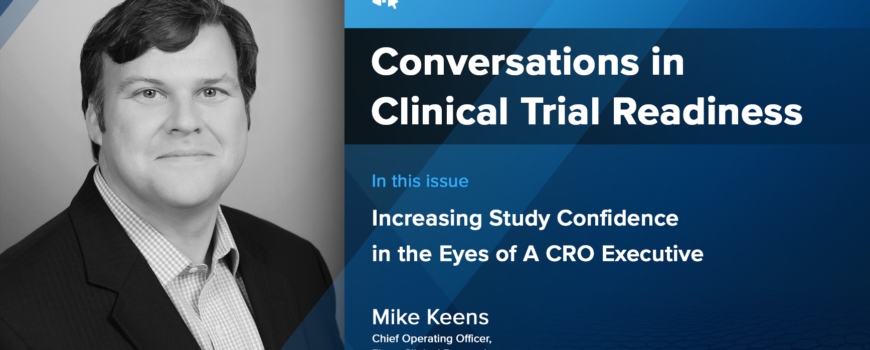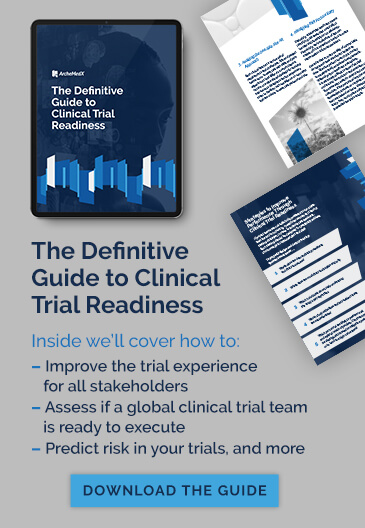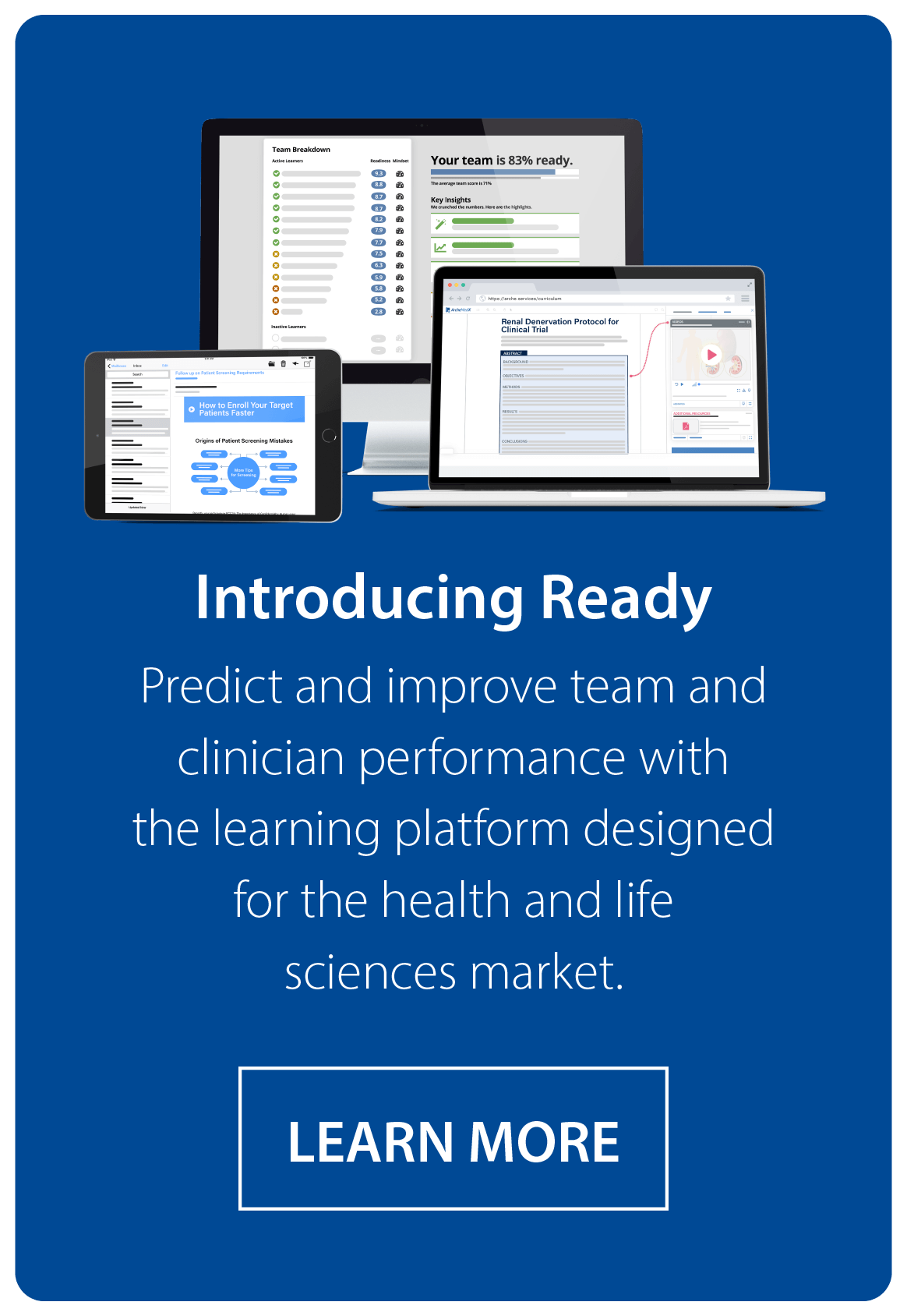 We recently talked with Mike Keens, Chief Operating Officer at Firma Clinical Research, a clinical research service provider specializing in patient-focused trial designs, often with at-home visit support. We wanted to share these excerpts from the conversation:
We recently talked with Mike Keens, Chief Operating Officer at Firma Clinical Research, a clinical research service provider specializing in patient-focused trial designs, often with at-home visit support. We wanted to share these excerpts from the conversation:
ArcheMedX:
What do you see as the biggest or most common challenges to preparation for, or conduct of, a clinical trial?
Keens:
A former CEO of Amgen used to say you need to have a shared reality. So when you’re getting things up and running in a clinical trial, if you haven’t taken the time to get everybody together and make sure they’re all operating under the same assumptions, things will start to go wrong.
You’ve been talking about the project ever since the RFP, you did a bid defense a few months ago, and since then, a bunch of things have changed. Take the time to review everything and making sure that you’re aligned.
Unfortunately, most people feel they don’t need this. They think, “We already know what’s going on.” But you would be surprised what you learn when you get everybody together.
ArcheMedX:
What is your approach to training clinical trial staff?
Keens:
We have robust training for each protocol. Also, because we’re directly supporting patients in the home, we routinely partner with advocacy organizations so that not only are we training on the protocol requirements, but we also train staff on the patients. That involves getting information from the advocacy groups on subjects like what the patients’ lives are like, what situations our team members are likely to encounter, and how we can make sure that the patients have a good experience.
A concern in our industry is that many teams do a great job on the initial training, but after that, never think about it again. We need to make sure that people have the right knowledge and skills not only on day one, but that they maintain that knowledge and those skills.
We need to make sure that people have the right knowledge and skills not only on day one, but that they maintain that knowledge and those skills.
ArcheMedX:
As a study goes on, inevitably there is staff turnover. How do you get new people up to speed?
Keens:
The original training materials are always helpful. Also, we keep a running log of decision making and the rationale for any changes that have been implemented since study start. I’m sure other groups have something similar, but the challenge is more than getting somebody up and running on the initial information. It’s how do you get someone educated on the 18-month history of the trial that they are joining without having them feel it will take 18 months to learn it?

ArcheMedX:
What would you like to do differently when it comes to preparing and assessing staff?
Keens:
I would really like a tool or system that, with very little manual input, can do staff training, but can also continue to assess how people are doing and gives us ongoing confidence that a team is on track. Consider that when you get your driver’s license, that’s not the end. Every once and awhile, you have to go back to the DMV and get your license renewed.
Anything that might provide oversight and data would be helpful. I mean, I’d love to be able to share that information with sponsors and say, “Hey, here’s where we are. You don’t even need to ask how things are going.”
I would really like a tool or system that, with very little manual input, can do staff training, but can also continue to assess how people are doing and gives us ongoing confidence that a team is on track.
ArcheMedX:
Do you have any particular plans for the year ahead? Anything new you’ll be implementing?
Keens:
We’re spending a lot of time working on direct-to-patient feedback — or direct-from-patient feedback. It’s not something widely done in the industry, which I understand because of privacy concerns, but we’re reaching out to patients to schedule visits, going to their locations to get feedback. I think the next project will be to work on how we can better implement training for nurses and phlebotomists.
ArcheMedX:
As Mike astutely observes, it is critical to ensure that all persons involved in a trial are prepared not only on day one, but that they remain highly capable throughout the duration of the study. Equally important is the need to continually assess the readiness and performance of all persons to provide confidence the study is on the right track.





